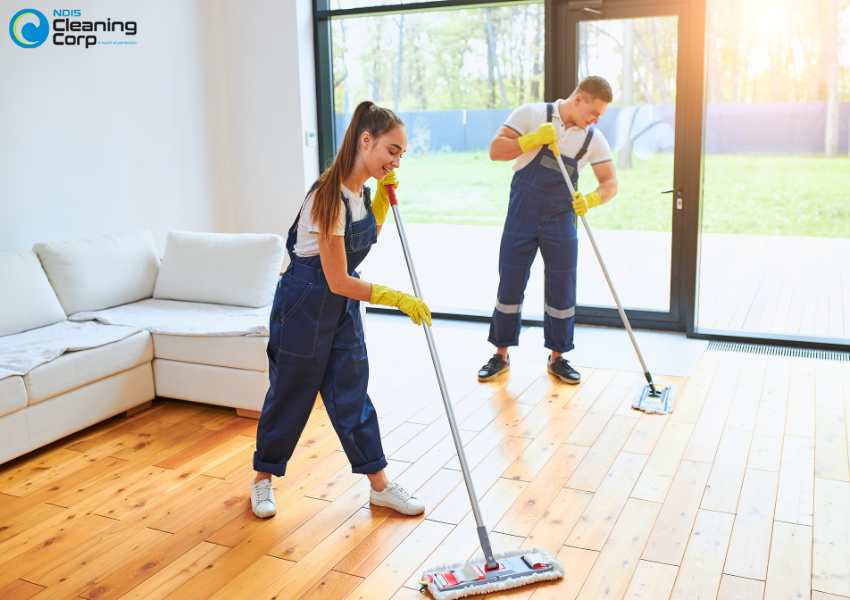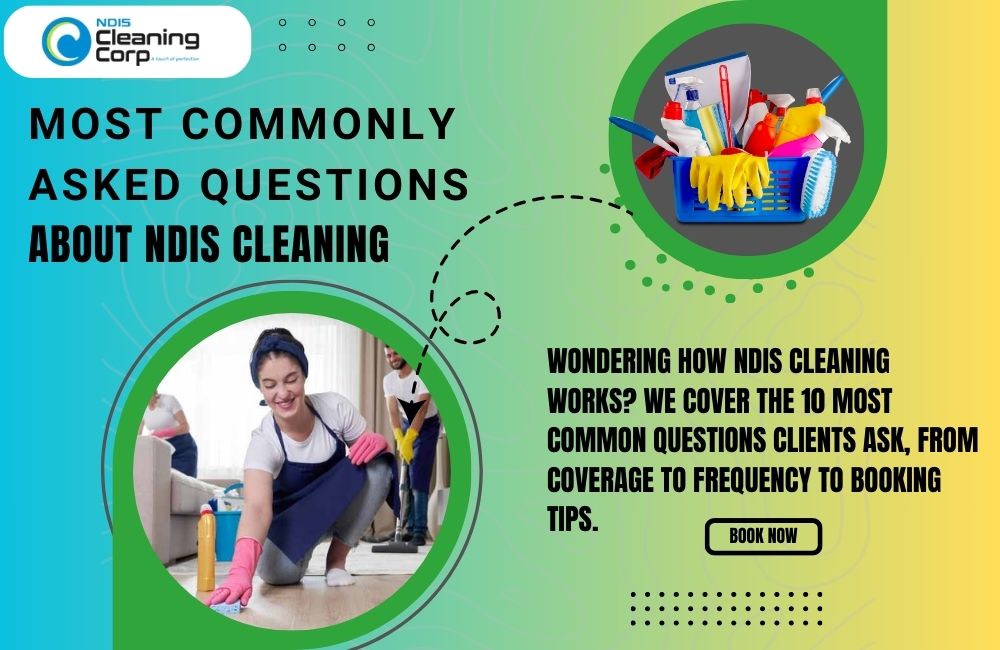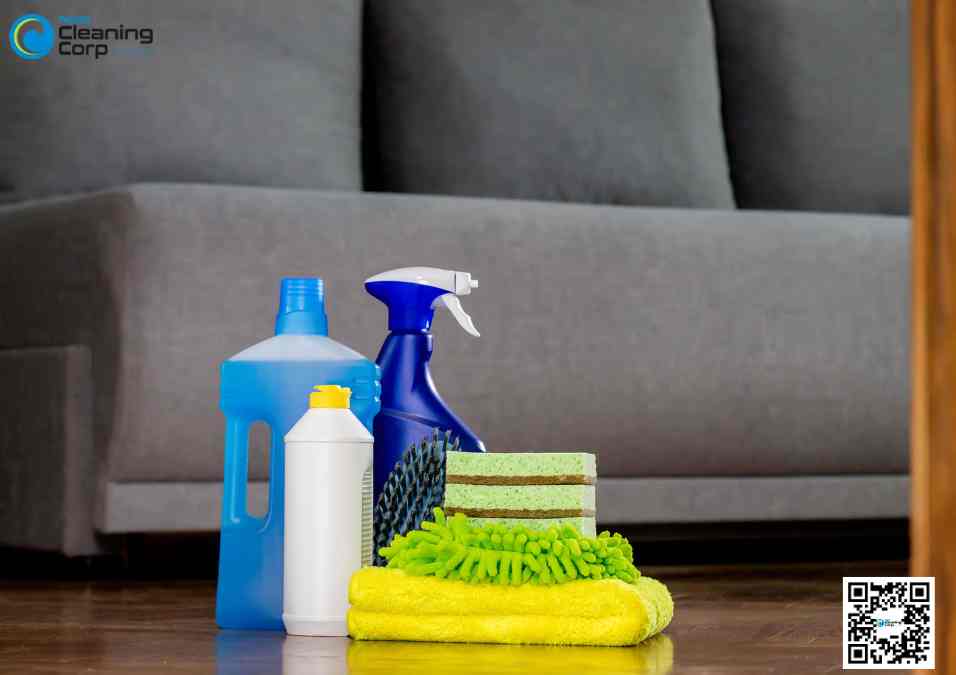Does the NDIS Fund Cleaning Services?
Yes. The NDIS does fund cleaning services — but it...
Hygiene and cleanliness are not just about looking good; they’re about feeling good and living well. Imagine waking up every day in a fresh, clean environment. The air feels lighter, the mind feels clearer, and the spirit feels uplifted. For many, especially those supported by the National Disability Insurance Scheme (NDIS), this clean slate can mean the world.
The NDIS is a lifeline for individuals with disabilities, providing the support they need to lead fulfilling lives. It’s about more than just financial aid; it’s about empowerment. It helps participants access essential services, including those that maintain their health and well-being. When we talk about hygiene and cleanliness, we’re not just discussing routine chores; we’re addressing a fundamental aspect of health that impacts every facet of life.
For NDIS participants, maintaining a clean living space is crucial. It goes beyond aesthetics; it’s about creating an environment that nurtures well-being. A clean home fosters independence, dignity, and peace of mind. It allows participants to focus on their goals without the distractions and stress that come from clutter and dirt. When cleanliness becomes a priority, everyone involved—participants, families, and caregivers—can experience significant improvements in their quality of life.

You may not realize it, but the state of our surroundings can have a profound impact on our mental health. A cluttered or dirty environment can lead to feelings of anxiety, depression, and even frustration. When I first started NDIS Cleaning Corp., I was surprised to learn how many people were struggling with these feelings due to their living conditions.
Let me share a story about a client named Sarah. Sarah is a vibrant woman in her thirties who, after a car accident, became a participant in the NDIS. When I first visited her home, I noticed that it was cluttered and unkempt. Sarah expressed feelings of hopelessness and often felt overwhelmed by her surroundings. It was clear that the mess was weighing her down.
After we cleaned her space, I witnessed a remarkable transformation. The relief on her face was palpable. She shared with me how a clean and organized home made her feel empowered, reminding her of her strength and independence. In that moment, I realized that cleanliness promotes a sense of safety and comfort—it restores confidence and enables individuals to reclaim their lives.
It’s not just about mental well-being; hygiene practices significantly reduce the risk of infections and illnesses, which is especially crucial for NDIS participants who may already face health challenges. Think about it: a clean space minimizes the presence of harmful bacteria and allergens.
In fact, studies show that maintaining proper hygiene can lower the risk of respiratory infections by as much as 50% in vulnerable populations. For individuals with disabilities, where health may already be compromised, these statistics are life-changing.
Consider another client, Mark, who lives with a chronic illness. Before he began focusing on hygiene, he often found himself falling sick. After implementing a regular cleaning routine—something as simple as disinfecting surfaces and keeping his space organized—he noticed fewer trips to the doctor. His energy levels increased, and he was able to engage in activities he enjoyed, like painting and spending time with friends.
These stories illustrate how vital hygiene and cleanliness are for NDIS participants’ well-being. A clean environment doesn’t just mean fewer illnesses; it contributes to an overall better quality of life, allowing individuals to thrive rather than just survive.
I often find myself reflecting on the incredible journeys of the NDIS participants I’ve had the privilege to work with. One story that stands out is that of Lisa, a bright and determined woman in her late twenties. Lisa has a disability that makes it challenging for her to maintain her home, and as a result, she was living in an environment that didn’t reflect her vibrant personality.
When I first visited Lisa, she expressed how her home had become a source of stress rather than comfort. The clutter was overwhelming, and she felt trapped in a cycle of cleaning and organizing that never seemed to end. Together, we created a plan tailored to her needs. We decluttered her space and established daily cleaning habits. Over time, I watched as her confidence grew along with her sense of ownership over her living environment.
Lisa told me how the change in her home environment positively impacted her mental health. She was able to focus better on her art projects and even started a small business selling her paintings. This transformation was more than physical; it gave her a renewed sense of purpose and joy. It’s these stories that inspire me every day—witnessing how better hygiene practices can lead to profound improvements in well-being.
Equally important in Lisa’s journey was the support from her caregiver, Anna. Anna played a vital role in encouraging Lisa to embrace these changes and stay committed to her new routine. Caregivers like Anna are often unsung heroes in the lives of NDIS participants. They provide not only physical support but emotional encouragement as well, creating an environment where cleanliness becomes a shared goal.
The impact of improved hygiene doesn’t just stop at the individual level; it ripples out to families and the broader community. I recall a touching moment during a community event where several NDIS participants, including Lisa, shared their stories. Families attended, and I could see the pride in the eyes of the parents and siblings. Their loved ones were thriving, not just because of personal achievements but due to the collective effort to foster cleanliness and hygiene.
Take the case of Jake, a young man who struggled with both physical and mental health challenges. As he started prioritizing hygiene with the help of his support network, his relationships with family members improved significantly. His parents noticed a change in his demeanor—he was happier, more engaged, and willing to participate in family activities. It was heartwarming to see how a clean and organized environment allowed Jake to feel comfortable inviting friends over, leading to stronger social connections.
These transformations remind us that when we prioritize cleanliness, we foster a sense of belonging and community. The shared benefits of cleanliness extend to everyone involved, creating a supportive environment where individuals feel valued and empowered.
Establishing daily hygiene routines can seem daunting at first, but small steps can make a huge difference. Here are some practical tips I often share with NDIS participants and their caregivers:
Support services play a critical role in helping NDIS participants maintain hygiene. They offer practical assistance that goes beyond cleaning; they empower participants to take ownership of their spaces and routines.
For instance, many NDIS cleaning services, like ours at NDIS Cleaning Corp., provide tailored cleaning plans that cater to the unique needs of each participant. Our trained professionals not only clean but also educate individuals on maintaining their spaces, reinforcing the idea that cleanliness is a partnership.
Moreover, it’s crucial to invest in training for caregivers. They need to understand the significance of hygiene practices and how to support NDIS participants effectively. Simple training sessions on cleaning techniques, organization strategies, and the importance of hygiene can transform how caregivers approach their roles. When caregivers are equipped with the right tools and knowledge, they can help instill good habits that last a lifetime.
When we think about hygiene, we often think about cleanliness and tidiness, but for NDIS participants, it’s so much more than that. Hygiene directly impacts health and well-being, especially for those living with disabilities.
For instance, a clean environment helps reduce the risk of infections and illnesses, which can be life-threatening for individuals with compromised immune systems. I remember meeting Claire, a lovely lady who has a neurological condition that makes her susceptible to infections. When her living space was cluttered and unclean, she often found herself in and out of the hospital. However, once we established a regular cleaning routine and focused on hygiene, her health drastically improved.
Having a hygienic space not only keeps physical ailments at bay but also enhances mental health. A clean and organized environment promotes a sense of peace and control, reducing anxiety and fostering emotional well-being. That’s why prioritizing hygiene is crucial for NDIS participants—it’s about creating a safe haven where they can thrive.
Encouraging better hygiene habits is all about creating a supportive environment, whether at home or in the community. Here are some strategies that have proven effective:
There are numerous resources available for NDIS participants and their families looking to improve hygiene practices.
I always encourage families to seek out these resources—whether it’s local cleaning services, educational websites, or community initiatives. They can make a world of difference in establishing and maintaining good hygiene practices.
As we wrap up, it’s clear that hygiene and cleanliness are not mere chores; they are vital components of well-being for NDIS participants.
By fostering a clean environment, we empower individuals to lead healthier, happier lives. From improved physical health to enhanced mental well-being, the benefits of prioritizing hygiene are profound.
I encourage you, dear readers, to take proactive steps in promoting hygiene practices in your homes and communities. Whether it’s implementing daily routines or engaging local services, every effort counts.
Remember, a clean space is a foundation for a better life. Let’s prioritize cleanliness in our daily lives—because everyone deserves to feel safe, comfortable, and valued in their environment.

Yes. The NDIS does fund cleaning services — but it...

Alright, let’s get straight into it. These are the questions...

NDIS cleaning services are specifically designed to cater to the...

The role of professional cleaning in maintaining a safe and...

Studies consistently show that living in a clutter-free, organized space...